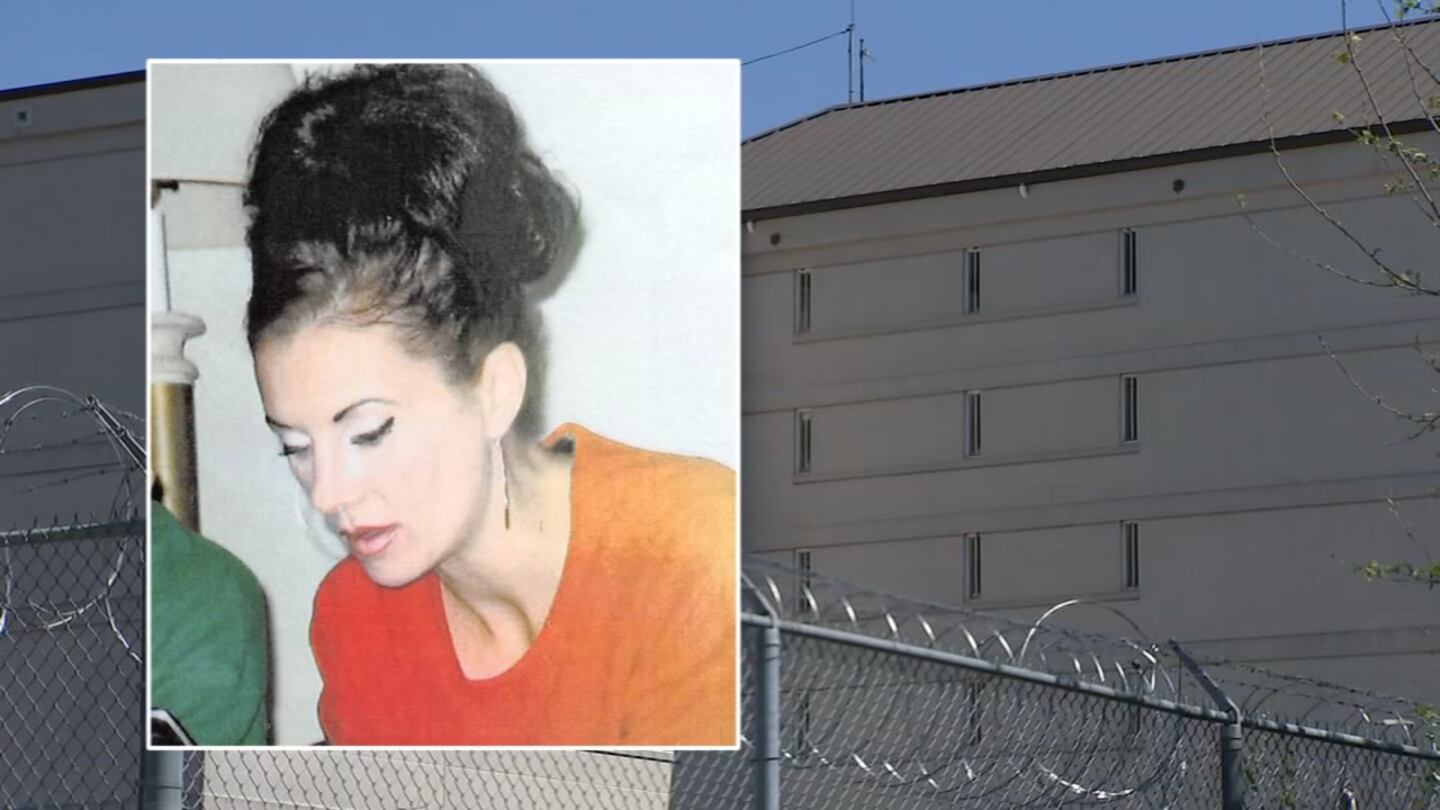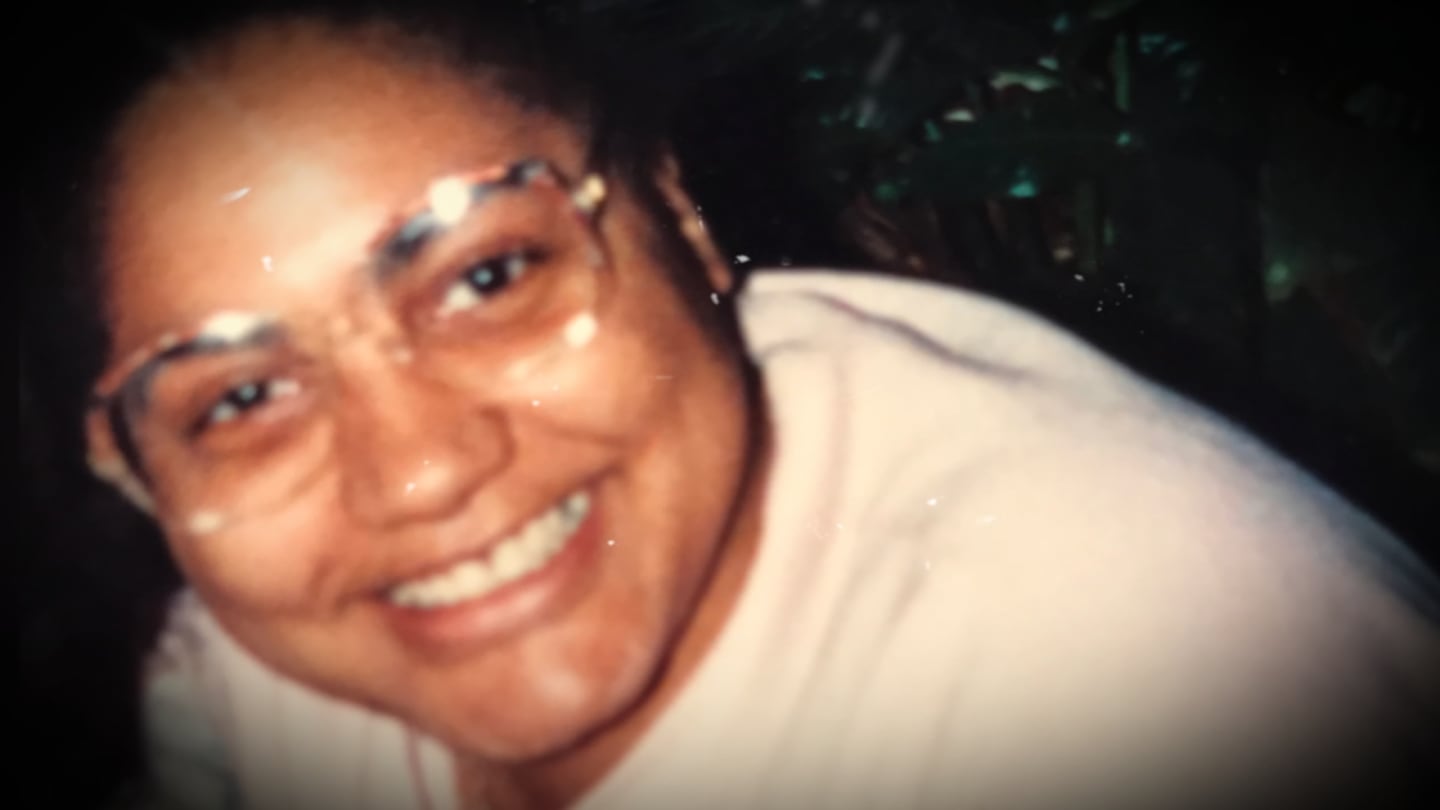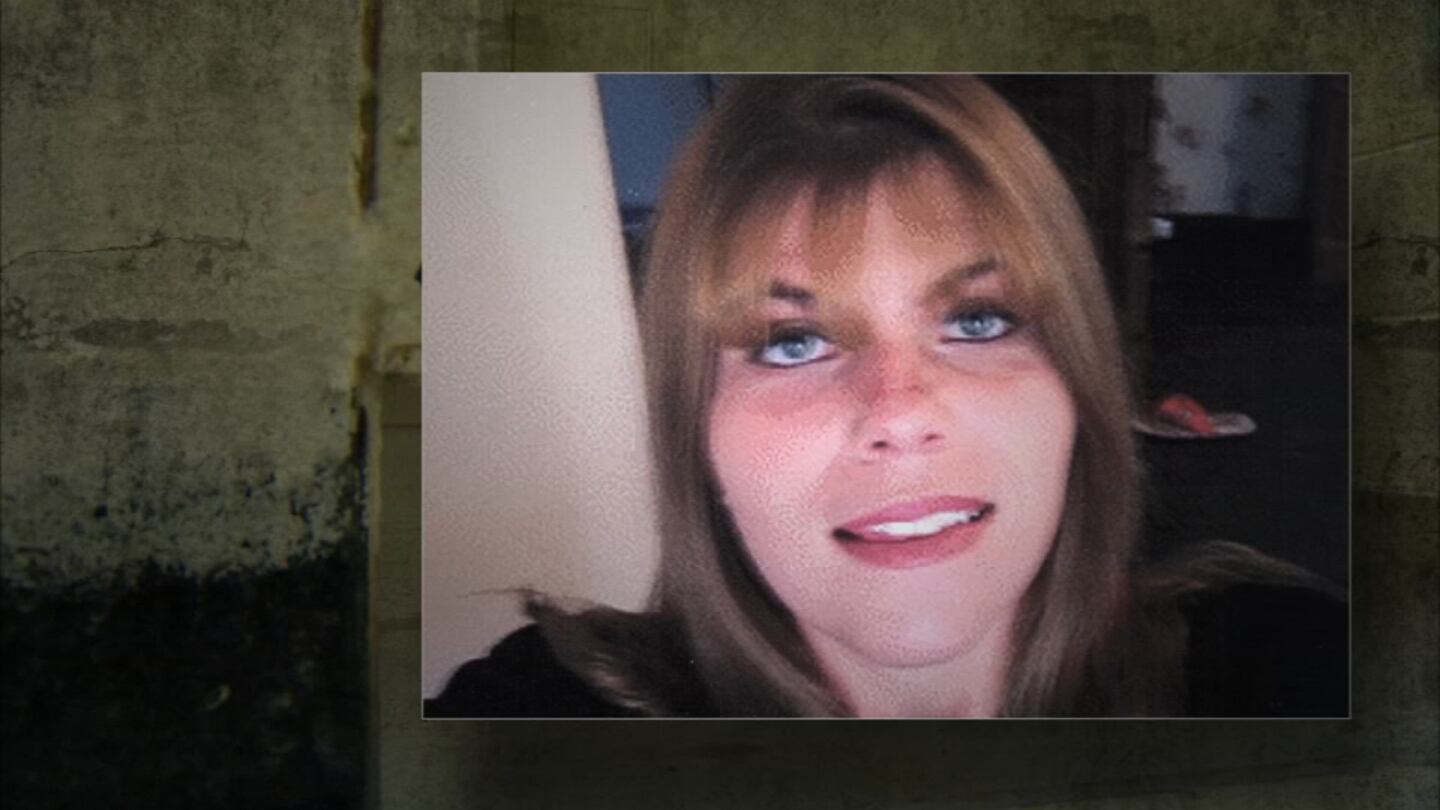In Lori Carroll’s final hours, as her psychotic behavior spiraled out of control, no one at the Muscogee County Jail helped relieve her suffering.
Carroll, 46, had a history of mental illness and had spent multiple stints behind bars for theft, shoplifting and forgery. In her last arrest, officers in Columbus charged her on the morning of Oct. 22, 2013, with disorderly conduct after she harassed drivers at a local school. Police took Carroll to jail after she refused a hospital mental health evaluation.
Over the course of the next two days, Carroll’s condition worsened in the isolation of cell HD-13. She screamed repeatedly and pounded her fist on the cell door. She spoke to imaginary people and thought a man was trying to rape her. She struck her head against a wall and a metal bunk, investigative records show.
On the morning of Oct. 24, less than nine hours after a jail doctor placed Carroll on suicide watch, a guard discovered her cold and stiff on the cell floor. Her mouth and eyes were open. Cuts and bruises covered her body. A state medical examiner noted a serious head injury, broken ribs and a collapsed lung that killed her.
“It was like something out of a horror movie,” said Justin Blake Toland, Carroll’s adult son. “She didn’t deserve that. No one does.”
Gaps in the criminal justice and mental health systems have turned local jails into warehouses for the mentally ill, often with fatal consequences.
The Atlanta Journal-Constitution, Channel 2 Action News and the Georgia News Lab conducted one of the most comprehensive reviews of jail deaths ever undertaken in Georgia, reviewing the deaths of more than 500 inmates and detainees in the state's local jails in the past decade. The investigation found:
-- One in six deaths attributable to something other than natural causes involved inmates who exhibited signs of mental illness. The deaths were often preventable. Jail staff routinely didn’t recognize threats and warning signs until it was too late, ignored or expressed indifference to an inmate’s crisis or failed to keep troubled inmates under close observation.
-- Thirty of the 168 jail suicides examined by reporters involved inmates for whom signs of mental illness were noted in public records or press accounts. But the number of these deaths linked to mental health is likely significantly higher. Studies estimate 90 percent of people who commit suicide suffer mental illness.
-- The 16 homicides accounted for just a fraction of all jail deaths. But nearly half of those involved inmates who exhibited signs of mental illness — showing that mentally ill inmates can pose a danger not just to themselves but to those around them.
-- No single state or local agency in Georgia tracks how many people die in jails each year or the details of the cases, and federal statistics routinely under-count Georgia’s jail deaths. There’s little analysis to inform policy discussions and promote training that could prevent jail deaths.
-- Protecting and treating the mentally ill behind bars is something jailers have struggled with for decades. The federal Justice Department has estimated that nearly two-thirds of all local jail inmates have mental health problems. The prevalence of inmates with a mental illness in Georgia jails seems to have increased over the past decade as the state closed psychiatric hospitals, said Terry Norris, executive director of the Georgia Sheriffs’ Association.
Norris said responsibility now falls to community treatment programs -- and the state’s 143 county jails.
“Unfortunately, our county jails have become the primary providers of mental health services for many of our state’s most vulnerable citizens,” he said.
Sheriffs do the best they can with finite local resources to manage this troubled population, he said.
In Carroll’s case, despite her serious injuries, repeated screams and bloodied face, jail guards and medical staff never sent her to a hospital for treatment. The jail’s protective restraint chair designed to stop inmates from harming themselves sat unused. Guards and medical staff couldn’t agree on who should make the call to restrain her.
RELATED INVESTIGATIONS:
- Mom: Son's suicide in jail could have been prevented
- Family demands answers after 22-year-old dies in jail
- Lawsuit: Woman died after being left unattended for hours in jail
Toland and his half-brother sued the county government, jailers and its medical providers alleging willful indifference and a flawed policy that failed to protect the mentally ill. A federal judge dismissed the case against the government and its employees, but last December Carroll’s sons settled with the medical providers.
“It was one of the worst cases in terms of neglect I’ve ever seen,” said Craig Jones, the family’s attorney, who has litigated dozens of jail death cases. “She literally beat herself to death right in front of them."
“She was always smiling, just very cheerful,” Mildred Sims says, reminiscing about her little sister, Wickie Bryant.
Byrant graduated from Therrell High School in Atlanta with plans to become a psychiatrist. But her own mental health derailed a life of helping others. In early adulthood she was diagnosed with schizophrenia.
“She was in her early twenties when I found out, when it began,” Sims said. “When I began to realize that there was something wrong. And then I realized that I needed to get help for her."
Sims tried. So did other family members. But in the fall of 2015, Wickie, who lived in group homes, disappeared. Police found her in a hospital that she refused to leave, and charged her with disorderly conduct.
She went to the Atlanta Detention Center.
“I felt relieved that she was no longer on the streets and no longer a threat … you know, no one would harm her,” said Sims.
Now she knows Wickie was not safe, even though she was initially put in the special-needs unit because of her mental health and diabetes.
“Miss Bryant was sadly found alone, in an unlit cell where the lights had not worked for years, in a pool of her own feces, urine and vomit,” said the family’s attorney, MJ Blakely Jr. “We learned from the medical examiner's investigation that when she was found, she was in full rigor.”
According to a lawsuit against the detention center and staff, "Ms. Bryant became agitated" and "instead of seeking medical or mental-health assistance," the jail staff "moved Ms. Bryant" to a dark cell. It was there she died of diabetic ketoacidosis.
Kimberly Clements, a mother of two, was booked into the Camden County Jail in July of 2011. She told her parole officer she was suicidal. But when the parole officer reported that to the sheriff, a lawsuit claimed the sheriff replied, “Let the ***** kill herself.”
Jailers placed Clements alone in a cell, within direct view of the booking desk, just a few feet away.
On Saturday afternoon, two inmate trustees discovered Clements dead in her cell. Authorities said she’d hanged herself from a shower curtain rod.
“They just put her in there … and let her be,” said Clements’ mother, Linda Jenkins, who does not believe the official explanation of her daughter’s death.
When an emergency medical crew arrived, they found Clements in her cell, cold and blue, lying in what appeared to be a puddle of water with flies hovering around her open mouth.
“We’re using our jails as mental health facilities,” said Rep. Buddy Carter. “I mean, we are doing a disservice not only to those inmates, but also to society, because that’s not where they need to be. They’re not getting the help they need.”
"I'm not sure about a culture of indifference or just not wanting to address the problem, and denying the problem,” said Carter continued.
Our investigative partners at the Atlanta Journal-Constitution are looking further into the renewed focus on help for the mentally ill after a record number of jail suicides. You can read their story in Sunday’s newspaper.
Cox Media Group







